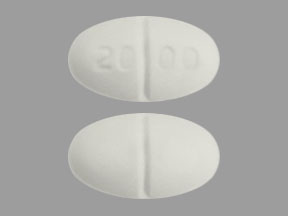Penicillamine and Alcohol/Food Interactions
There are 2 alcohol/food/lifestyle interactions with penicillamine.
Penicillamine Multivitamins With Minerals
Moderate Drug Interaction
PenicillAMINE and multivitamin with minerals should not be taken orally at the same time. Products that contain magnesium, aluminum, calcium, iron, and/or other minerals may interfere with the absorption of penicillAMINE into the bloodstream and reduce its effectiveness. You should take multivitamin with minerals at least 2 hours before or 2 hours after the penicillAMINE dose, penicillAMINE should be taken at least 2 hours before and not less than 6 hours after Suprep Bowel Prep (magnesium/potassium/sodium sulfates), or penicillAMINE and multivitamin with minerals should be taken as directed by your healthcare provider. Talk to your healthcare provider if you are unsure whether your medications contain something that could potentially interact or if you have questions on how to take this or other medications you are prescribed. It is important to tell your doctor about all other medications you use, including vitamins and herbs. Do not stop using any medications without first talking to your doctor.
Penicillamine Food/Lifestyle
Moderate Food Interaction
You may experience reduced absorption of penicillAMINE in the presence of food. The effectiveness of the antibiotic may be reduced. PenicillAMINE should be administered one hour before or two hours after meals and at least one hour apart from any other drug, food, or milk. This will make it easier for your body to absorb the medication.
Switch to professional interaction data
Penicillamine drug interactions
There are 128 drug interactions with penicillamine.
Penicillamine disease interactions
There are 5 disease interactions with penicillamine which include:
More about penicillamine
- penicillamine consumer information
- Check interactions
- Compare alternatives
- Pricing & coupons
- Reviews (2)
- Drug images
- Side effects
- Dosage information
- During pregnancy
- Drug class: antirheumatics
- Breastfeeding
- En español
Related treatment guides
Drug Interaction Classification
| Highly clinically significant. Avoid combinations; the risk of the interaction outweighs the benefit. | |
| Moderately clinically significant. Usually avoid combinations; use it only under special circumstances. | |
| Minimally clinically significant. Minimize risk; assess risk and consider an alternative drug, take steps to circumvent the interaction risk and/or institute a monitoring plan. | |
| No interaction information available. |
See also:
Further information
Always consult your healthcare provider to ensure the information displayed on this page applies to your personal circumstances.


